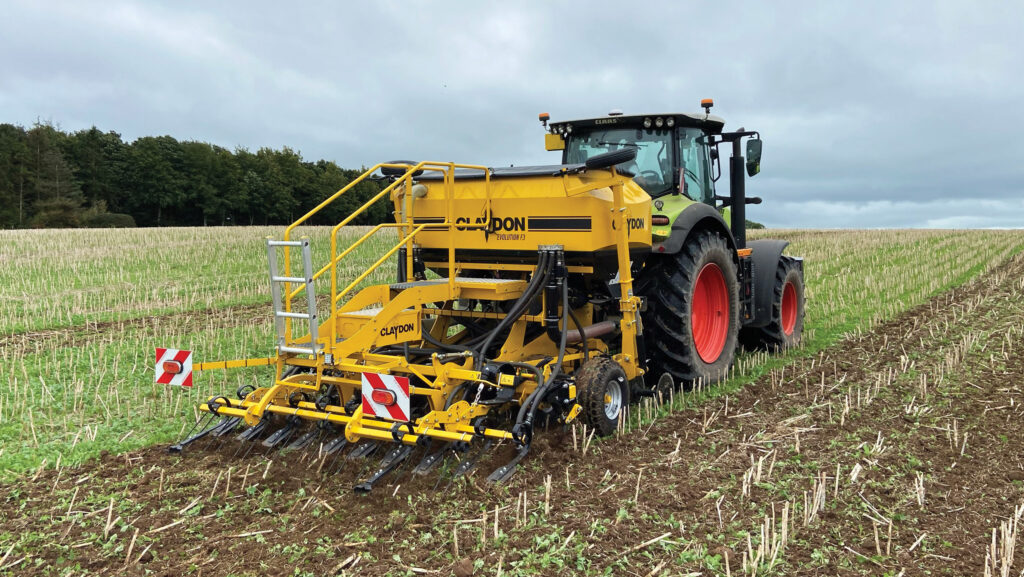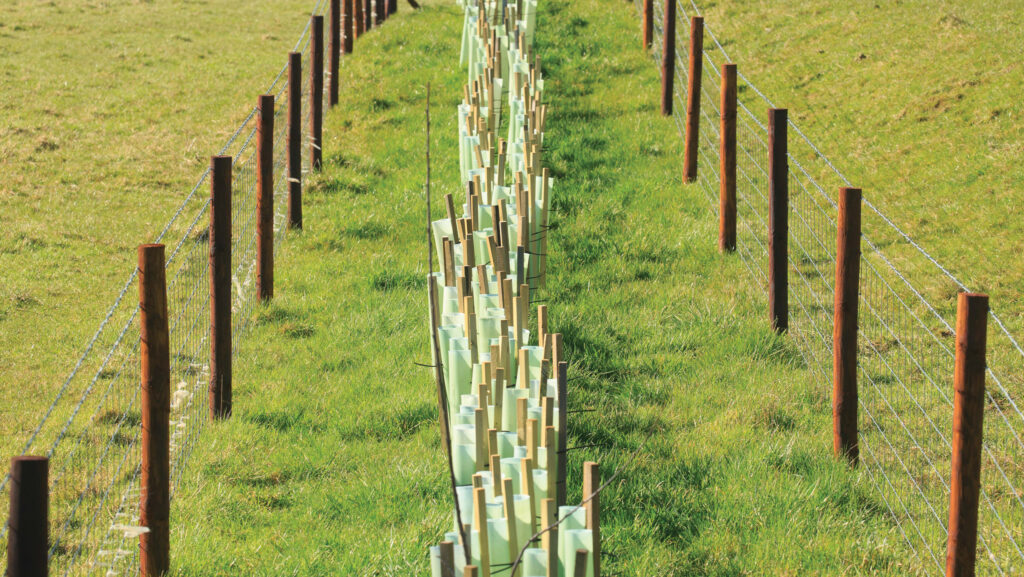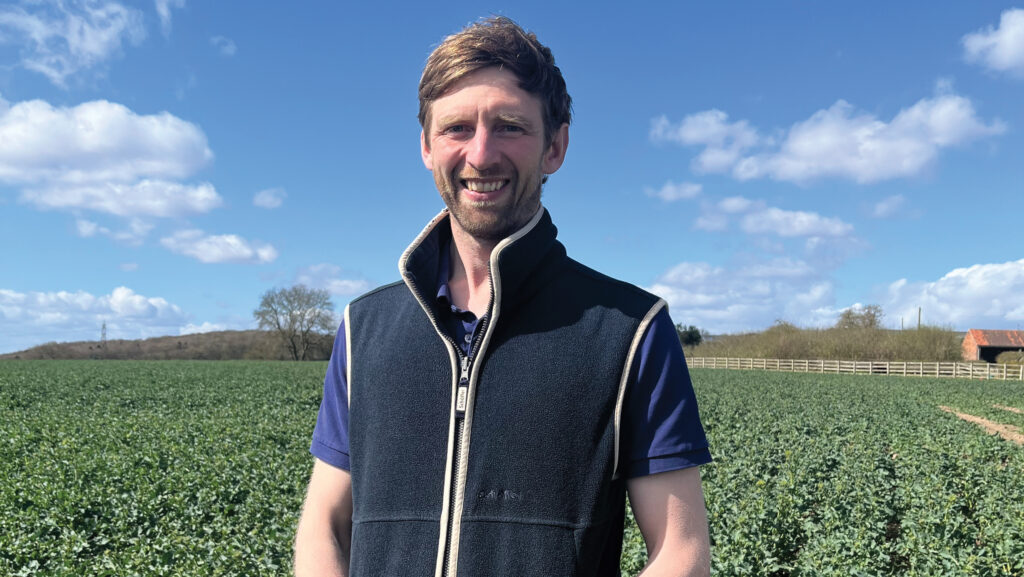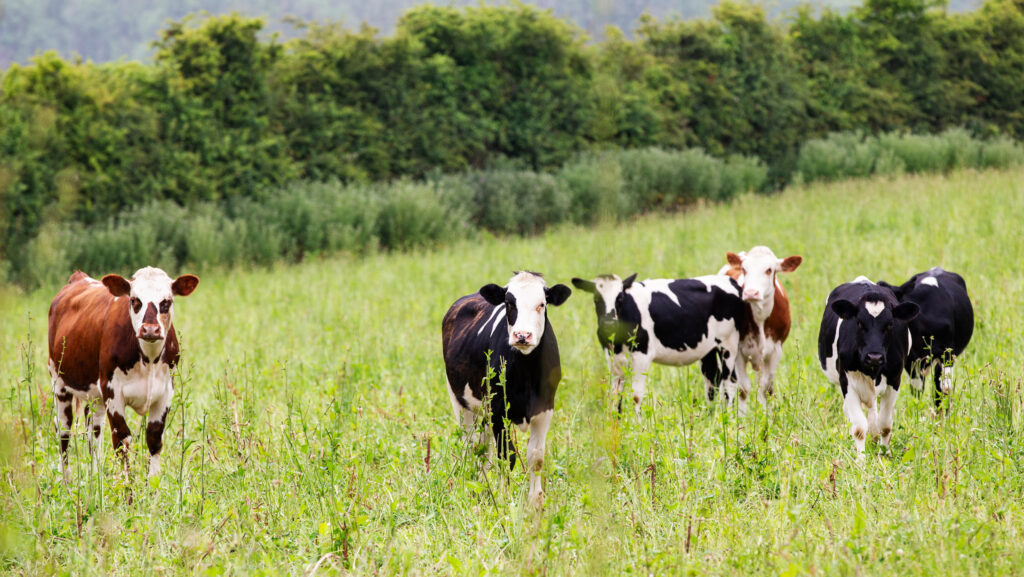Supply chain funding: What’s on offer for regen farming
 © Claydon
© Claydon While both private and public funding have been available, the recent pausing of the Sustainable Farming Incentive (SFI) and capital grants by the government is putting the onus on supply chain partners and private companies to step up.
Some private schemes have only been available on a restricted geographical basis until now.
However, the trend is for more uniformity across programmes as increasing numbers of players get involved.
As a result, alternative pricing models related to regenerative practices, baselining and continuous improvement are on offer, as well as training and support for changing farm management and meeting specific objectives.
See also: Why one Essex arable farm faces difficult decisions in 2025
Data requirement
There is plenty of activity in arable and dairy supply chains for sustainable production, says Martin Lines, chief executive of the Nature Friendly Farming Network.
Martin explains that the participating companies and processors all need data to understand what’s going on at the farm level.
“We have some national numbers on the carbon footprint for a tonne of wheat produced,” he says.
“But the unknowns are how accurate they are, whether they are based on results from a Cambridgeshire farm or whether they are more applicable to sites in Yorkshire or Somerset, for example.
“Another unknown is whether the figures should be the same for wheat produced in a regenerative system, compared to one where ploughing takes place.”
So it’s not surprising that food manufacturers and others are paying farmers for certain actions and collecting the data, he adds, as the market needs to be aware of what’s happening before it looks at how things could be changed.
Looking Ahead
The shift to environmental and public outcomes means that farmers can expect the following developments from supply chains as they gather pace, says Jim Knightbraid, Frontier Agriculture’s commercial lead for sustainable programmes:
- Easier, simpler procedures with a reduced administrative burden
- More uniformity across programmes
- More partners joining schemes and offering rewards
- Whole farm programmes with consistent support for practices.
Martin’s advice to farmers is to talk to supply chain partners and ask about the schemes that they have to offer, as there’s quite a choice out there.
“Get involved. All supply chains are moving in this direction, so be proactive and market yourself. Communicate the way that you’re farming and get rewarded for your actions and your time.”

© Tim Scrivener
Sustainability programmes
At Frontier Agriculture, there are already a number of sustainability programmes up and running, with two main different types for the harvest 2025 crop, reports Jim Knightbraid, commercial lead for sustainable programmes.
These are split between sustainability data collection contracts, where growers are paid premiums as part of a grain contract to supply crop production data, and sustainable supply chain programmes where growers receive payments a hectare for certain farming practices.
“With the former, the data is anonymised and aggregated, before being reported to supply chain partners to help them understand the environmental footprint of products entering their supply chain.
“With the latter, the practices that growers are being asked to do are linked to reducing emissions, improving soil health and supporting biodiversity,” explains Jim.
To date, some 800 growers have signed up for these programmes, which cover winter wheat, winter oilseed rape and spring barley.
Already 65,000ha and 400,000t of grain are committed, he says.
“For farmers, the key is to make sure that you understand what you have to do and what information you have to provide, before you sign up,” he advises.
“The supply chain needs evidence for its own reporting commitments, so you do need to be prepared for audits.
“The data on how crops are grown has a value and making sure that you know why any partner needs it is important.”
It is an evolving space, he acknowledges, with rewards for farm recording coming in a range of forms – including value for data, access to lucrative contracts or premiums.
“When you consider the environmental targets that the government has signed up to, there’s no alternative for supply chains. If they aren’t sustainable, they won’t be part of the picture.”
Supply chain partners
Frontier’s supply chain partners all recognise the high standards and professional approach that UK farming has to offer, stresses Jim.
“This is about domestic production and the need for farming to be viable, not just about security of supply. There is a real commitment to the British farming industry.”
For this reason, there is flexibility within the programmes, he says.
“Our partners appreciate that farmers have the knowledge and experience to make practices work on a local level. Only they know what’s possible on their farms in typical conditions, or why something won’t work.”
Frontier is also a supply aggregator for Landscape Enterprise Networks (Lens) and works with the Lens Operator on behalf of its strategic partners Diageo, Nestlé and PepsiCo, to collate a proposal from a group of farmers and then submit it on their behalf.
Lens is competitive, but if successful, farmers receive funding for practices that reduce emissions or increase biodiversity.
This helps them to purchase equipment or adopt different ways of farming, as well as payments to encourage them to maintain more sustainable farming systems.
A platform for aggregated funding, Lens is being much clearer on the outcomes that it wants from farms this year, says Jim.
“It isn’t buying carbon credits, rather it’s an investment in measurable outcomes that supports greater biodiversity benefits and mitigation against climate change.”
He adds that Lens is one of the more detailed schemes in terms of monitoring and verification, with a comprehensive auditing and baselining requirement.
“We always stress to farmers that they must check what they are getting into. There is a range of options out there so they should review them all to find the right one for their business.”
Case study: Tom Channing, Leyfields Ltd, Kneesall, Newark

Tom Channing © Louise Impey
Public and private funding opportunities have been researched by a Nottinghamshire farming business as it looked for ways to become more sustainable without affecting yield or financial returns.
Given the government’s recent funding announcements and lack of a clear vision for the farming sector, a willingness to consider all the options when it comes to income streams has turned out to be the right approach.
The family-run farm first became involved with supply chain funding in 2009, when it became a member of the Molson Coors grower group and committed its spring barley crop to the brewer.
“In return, we do a sustainability survey for them,” says Tom Channing, who runs the farm with his uncle, Peter White. “Over the years, it has worked well for us.”
The 1,000ha arable business has also been quick to enter government schemes as they have materialised.
Today, there is an extensive Countryside Stewardship Mid Tier agreement in place, which finishes later this year, as well as an SFI 2023 agreement with two years left to run.
Capital grants, when they were still on offer, were taken advantage of, too, with a new 6m drill being secured so that cover crops could be established successfully.
Some of this money came through a successful application to Lens, a regional initiative which has multiple supply chain partners and an aggregated fund for nature-based solutions, distributed to farmers in key locations.
In addition, finance through Severn Trent Water’s programme Steps has been used since 2018 for various projects – including putting a bund around fertiliser storage facilities and installing rainwater harvesting.
“That was done on a 50:50 basis,” recalls Tom. “It has also helped with the costs of hedge planting, woodland management, and pond restoration, some of which was done with the Nottinghamshire Wildlife Trust.
“These are all things which help make the farm more resilient, deliver public goods and make sound business sense, but would have been difficult to justify without the funding.”
Through Graham Brown and Anna Ramsey, Frontier Agriculture’s senior farm trader and environmental crops adviser, Tom and Peter were made aware of other opportunities for the farm as they were launched.
This meant they could discuss whether they were appropriate for their system.
As a result, some 70ha of this year’s oilseed rape crop is eligible for £110/ha, comprising payments for the use of no-till, companion crops, nutrient management/integrated pest management plans and biodiversity strips.
That’s a total of £7,700, helping to de-risk the crop and keep its place in the rotation, after a very difficult time with it last year.
Other practices, which also offered a financial incentive, were dismissed as being inappropriate for the farm at this stage.
“A summer cover or catch crop is a good example of that,” says Tom.
“At a very busy time of year, it just wouldn’t be a priority for us and is unlikely to work well. If we were further south, it would be a very different story.”
With Frontier’s guidance, Lens funding will continue.
In 2024, as well as getting £10,000 towards the costs of a new mounted grain/fertiliser drill to be used across 350ha, the farm also received support for using fertiliser inhibitors, with a payment of £28/ha made across 673ha.
“That payment of £18,851 covered the additional cost of using inhibited urea through the whole season and prevented ammonia losses.
It has improved our nitrogen use efficiency and is the right thing to do from an air quality perspective.”
Tom points out that participation in Lens means he has to take part in a three-hour audit conducted by Adas to get a baseline.
As the farm already takes a regenerative approach with some crops, it is now on the platform’s Regenerative Pathway.
“That puts us in line for resilience payments in wheat, which will encourage us to continue with this approach. We have applied for these and are waiting to hear.”
In the same application, Tom has also applied for funding for a direct drilling trial in winter wheat, which will reward him for changing the way that the crop is grown and for bringing down fuel and artificial input use.
“We are planning to try direct drilling the crop after oilseed rape, just in one field,” he says.
“That will allow us to compare it to our standard practice on the farm, without adding to our risk or incurring extra expense.
“We have to strike a balance between optimising production and returns with care for the environment. The outcomes that they want are usually in line with the direction of travel that we are taking.”
Tom admits that he is spending more time meeting the administrative requirements of the various programmes than he did previously.
“The monitoring and recording involved is more of a burden, but it’s an integral part of these programmes.”
Navigating future funding: Eight steps
Frontier Agriculture suggests that farmers use the following eight-step approach to help make the best decision for their farming businesses:
1. What have you got on your farm and what are you already doing?
Existing on-farm environmental features or specific opportunities in your area
2. What is your strategic direction for the farm?
Appetite for risk, attitude to trials and innovation, future plans, infrastructure requirements and specific skills
3. Do you have the data to understand how your farm is performing?
Benchmarking figures, biomass and yield data, land use restrictions
4. How will funding fit within your farm?
Additional equipment, rotational changes, new farming practices or techniques
5. What are you going to be committing to?
Contract terms, data requirements and delivering environmental outcomes
6. Do the finances stack up?
Implementation costs, tax implications, integration of other funding opportunities, gross margin analysis
7. How will it support future compliance requirements?
Help to comply with legislation and assurance implications
8. Who can provide help and support?
Types of support and advice available for various opportunities
Sustainability programme launches for farmers in East of England
Routes to Regen is a farm pilot scheme, managed by the Royal Countryside Fund and sponsored by members of the Sustainable Markets Initiative.
It has been set up to demonstrate that regenerative farming can be a practical and rewarding proposition for farmers.
Launching this month (April 2025) and taking place in the East of England throughout the year, it brings together leading food and finance businesses to support farmers in adopting more sustainable practices.
Farmers will have access to a range of resources and opportunities, provided by participating businesses, including McCain’s, McDonald’s, Waitrose, Aon, Tokio Marine Kiln, Lloyds Banking Group, NatWest and Barclays.

© Adobe Stock
Managed by the Royal Countryside Fund, the options for participating farmers will include:
- Routes to premiums available for sustainably grown crops
- Discounts on cover crops, pollinator species and specialist crops
- Opportunities to integrate livestock and organic matter into rotations
- Demonstration days and knowledge sharing events
- Support to begin collecting environmental data.
By taking a whole farm approach, the programme aims to reduce the risks and complexity for farmers and make regenerative agriculture more achievable.
Other companies supporting the work include ADM, British Sugar, Burgess Farms, Cranswick, Farm Carbon Toolkit, Frontier Agriculture, Lens, Muntons, North Farm Livestock, Soil Association Exchange, Sustainable Food Trust and Wildfarmed.
